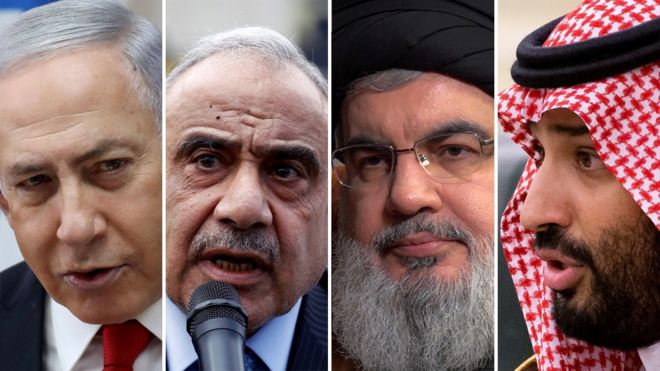
Imagine, if you will, a Middle East situation room with four of the region's key leaders who have been watching the recent confrontation between the US and Iran unfold.
At the table is Saudi Crown Prince Mohammed bin Salman; Israeli Prime Minister Benjamin Netanyahu; caretaker Iraqi Prime Minister Adel Abdul Mahdi; and Hassan Nasrallah, leader of Iran's Lebanese ally, the militant Hezbollah movement.
They've just been listening to what sounded like a "mission accomplished" speech from US President Donald Trump. Most of them, although perhaps not all, are breathing a sigh of relief. But they are scratching their heads about what this turbulent week means for their future.
For Mohammed bin Salman, the speech signals an immediate danger averted.
It's true the crown prince has previously been outspoken about what he's called the "evil" nature of Iran's leadership in recent years. But the Saudis have been urging de-escalation since Mr Trump ordered the assassination of top Iranian general Qasem Soleimani in a drone strike in Baghdad, afraid of becoming engulfed in a spiral of conflict between their ally, Washington, and their enemy, Tehran.
And if Saudi Arabia had been caught in the crossfire, there was no guarantee the US would have struck back on its behalf. It didn't last year, when two oil installations were disabled in an attack blamed on Iran.
That experience deepened doubt that the Saudis could rely on the man in the White House, who seemed to be telegraphing that he didn't want to get drawn into another Middle East war.
So they began exploring diplomatic options to reduce tensions with Iran.












0 Comments